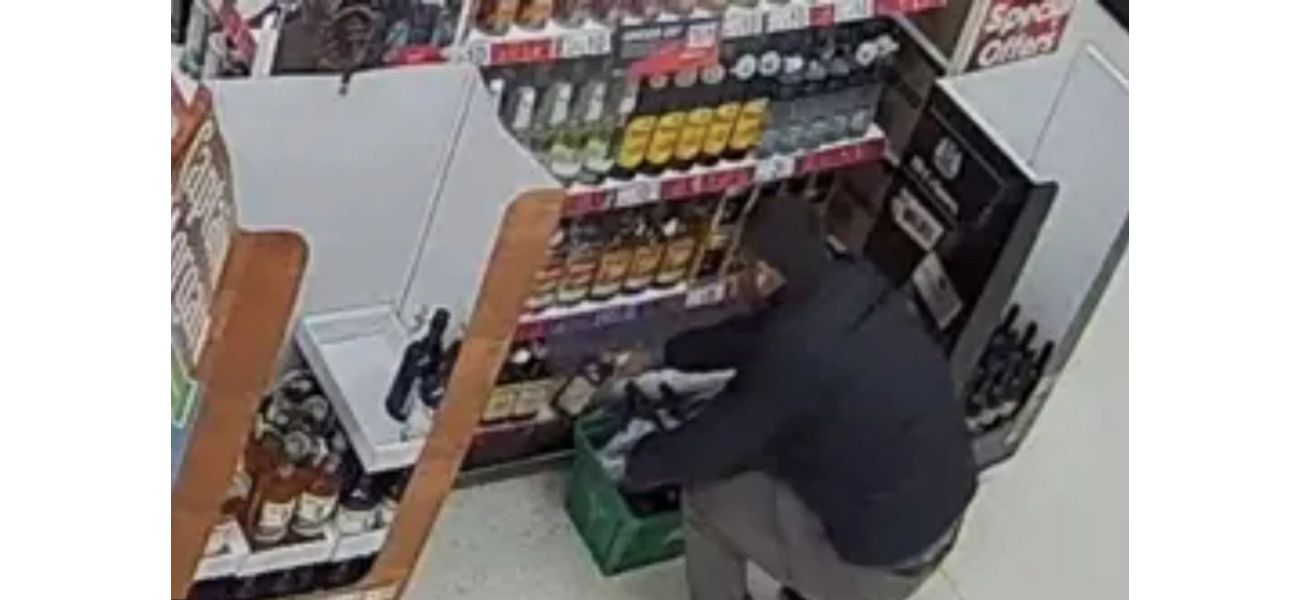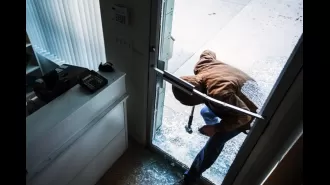Organized shoplifting gang stole £73,000 worth of champagne from stores.
Prof. Emmeline Taylor from City St George's Univ. London says gang's methods are basic yet successful.
October 16th 2024.

A group of criminals have recently been making headlines for their daring and sophisticated thefts. These thieves have managed to steal over £73,000 worth of champagne from various British shops and then sell it abroad. Their tactics are reminiscent of a mafia-style operation, complete with Bluetooth headsets for communication and a sense of coordination that has left the British high streets in even more disarray.
The main target of this criminal network has been champagne, and they have specifically focused on selling it in Romania where there has been a shortage. However, this is just one example of a larger issue in the UK. According to the National Business Crime Solution, there are 63 organized crime groups operating in the UK, responsible for stealing a total of £2.4 million worth of goods in the past five years. Shockingly, 26 of these groups are based in the UK and Ireland, while the rest come from Eastern Europe.
Emmeline Taylor, a criminology professor at City St George's University of London, explained that the group's tactics may seem simple, but they are highly effective. They use headsets to communicate with each other easily while in the store, similar to how the store itself uses technology for efficiency. This level of coordination sets these criminals apart from the rest, showing how professional and business-minded they are in their approach.
It's not just champagne that these thieves are after. They have also been targeting other high-end products in supermarkets, often hitting multiple shops in one day. In one instance, a gang targeted two different locations of Browns Department Store within just 90 minutes. This boldness and organization have resulted in a 27% increase in retail crime and a staggering £2.8 billion loss from customer theft in 2023.
Professor Taylor noted that this type of criminality has become more prevalent in recent years, with criminals becoming bolder and more organized. They have realized that shoplifting can be a high-reward, low-risk endeavor. With many stores no longer reporting thefts and criminals being able to target multiple locations with relative impunity, it has become an attractive option for organized groups. This has led to permanent closures of some businesses, causing a ripple effect on entire communities that can no longer access necessary items such as fresh food and medicine.
Despite security measures such as tags and other features, these thieves still manage to get away with their crimes. Professor Taylor estimates that less than 3% of shoplifting offenses are reported to the police, and a majority of those cases are closed without any suspects being identified. This has essentially decriminalized theft in the UK and has made it an appealing option for criminals both within the country and abroad.
However, Professor Taylor believes that there may be hope in the form of facial recognition and automatic number plate recognition technology. These tools could potentially track and prosecute these offenders, making it harder for them to operate across the country undetected. Only time will tell if this will be an effective solution in combating organized crime in the retail sector.
The main target of this criminal network has been champagne, and they have specifically focused on selling it in Romania where there has been a shortage. However, this is just one example of a larger issue in the UK. According to the National Business Crime Solution, there are 63 organized crime groups operating in the UK, responsible for stealing a total of £2.4 million worth of goods in the past five years. Shockingly, 26 of these groups are based in the UK and Ireland, while the rest come from Eastern Europe.
Emmeline Taylor, a criminology professor at City St George's University of London, explained that the group's tactics may seem simple, but they are highly effective. They use headsets to communicate with each other easily while in the store, similar to how the store itself uses technology for efficiency. This level of coordination sets these criminals apart from the rest, showing how professional and business-minded they are in their approach.
It's not just champagne that these thieves are after. They have also been targeting other high-end products in supermarkets, often hitting multiple shops in one day. In one instance, a gang targeted two different locations of Browns Department Store within just 90 minutes. This boldness and organization have resulted in a 27% increase in retail crime and a staggering £2.8 billion loss from customer theft in 2023.
Professor Taylor noted that this type of criminality has become more prevalent in recent years, with criminals becoming bolder and more organized. They have realized that shoplifting can be a high-reward, low-risk endeavor. With many stores no longer reporting thefts and criminals being able to target multiple locations with relative impunity, it has become an attractive option for organized groups. This has led to permanent closures of some businesses, causing a ripple effect on entire communities that can no longer access necessary items such as fresh food and medicine.
Despite security measures such as tags and other features, these thieves still manage to get away with their crimes. Professor Taylor estimates that less than 3% of shoplifting offenses are reported to the police, and a majority of those cases are closed without any suspects being identified. This has essentially decriminalized theft in the UK and has made it an appealing option for criminals both within the country and abroad.
However, Professor Taylor believes that there may be hope in the form of facial recognition and automatic number plate recognition technology. These tools could potentially track and prosecute these offenders, making it harder for them to operate across the country undetected. Only time will tell if this will be an effective solution in combating organized crime in the retail sector.
[This article has been trending online recently and has been generated with AI. Your feed is customized.]
[Generative AI is experimental.]
0
0
Submit Comment





